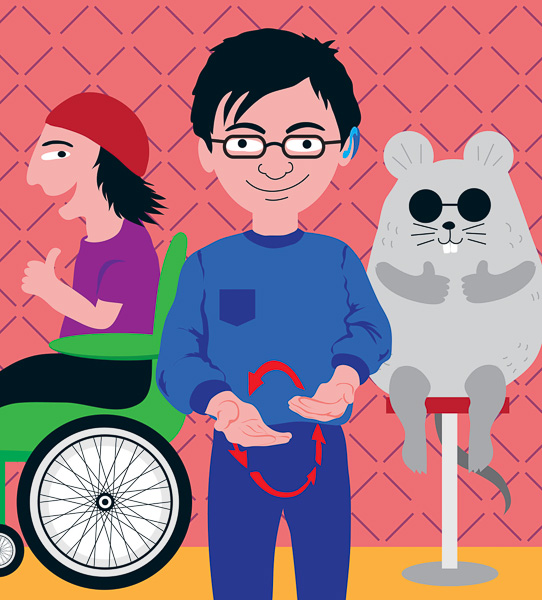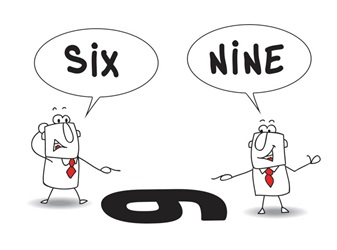It's Easier than You Think

First, let me ’fess up: I’ve never worked in the Public Service, though not from a lack of trying. (This would be an- other story for another day.) Having only ever worked in the private sector, I’m not familiar with the Service’s work culture or idiosyncrasies. But certain things are universal, among which is that working with colleagues with disabilities is a fraught and – as the diplomats from the Ministry of Foreign Affairs might put it – “challenging” issue.
Except it is not.
I’m not going to embark on a detailed how-to on working with persons with disabilities in the office – the types of disabilities are too numerous and the topic much too complex to cover in this short piece.
I’m also skipping the subject of physical accommodations and facilities – things like wheelchair ramps, screen readers and visual alarms. Your HR and IT colleagues would be responsible for ensuring these are provided.
What I’ll focus on is what you – as an individual – can do to make that colleague feel welcome and become a productive teammate. It isn’t that difficult or scary, really. Your colleague does not bite or have three heads. In fact, it involves no cost or inconvenience to you. It does, however, entail a bit of thoughtfulness, effort and common sense on your part.
Step 1: If your colleague hasn’t already taken the initiative to do so, ask him or her for tips on how best to communicate and interact with him/her, and how he/ she moves around (if help is needed in this aspect), handles meetings and performs work and other everyday tasks. This is the first and last step.
Well, that’s all. It’s that simple.
I do this myself whenever I join a new organisation or company. I send out an email to everyone, explaining my deafness and related limitations and how to work around them.
Take, for example, this tip from a person with a certain disability: “Please don’t move the furniture around. I need to use them as a reference point. If there is really a need to move them, please let me know. At the same time, please don’t move items that are on my table.”
So you don’t do that. And, yes, you guessed it – she is blind.
And here, a person with autism lists his seemingly odd behaviour: “I may talk to myself at my desk. I may be easily distracted by the smell of food or loud sounds. I may repeat a few words unintentionally and unknowingly. I may unknowingly interrupt you while you are engaged in some interesting conversation.” Ah, so you don’t freak out or take offence.
In short, our attitude makes the difference as to what is “normal” and what isn’t. If you treat a person’s disability as something out of the norm, to be mentioned only in hushed tones or as if she has a terminal illness, of course it becomes something abnormal and a stigma. Otherwise, it’s about as fearful and alien as the contact lenses we wear, the pills we take to control our high blood pressure, or the physiotherapy sessions we attend for our bad back.
Once you make the effort to understand the specific condition, and as long as you make the effort to interact directly with the person with the disability, the rest is a matter of habit and making adjustments – most minor, some needing more work, but all eminently manageable. You might even become good friends.
In the end, we – both non-disabled and disabled people – are a lot more adaptable and alike than we think. And I’d like to believe we Singaporeans are a more big-hearted, open-minded and civic-conscious lot than we are generally given credit for.
Let’s prove it. It’s easier than you think.
Alvan Yap, who is hearing-impaired, was previously a special education teacher both in Singapore and overseas, as well as an editor with a local publishing house. Currently doing advocacy work with the Disabled People’s Association (Singapore), he is contributing this opinion piece in his personal capacity.
- POSTED ON
Mar 7, 2014
- TEXT BY
Alvan Yap
-
Humour
Signs of Stress at Work








